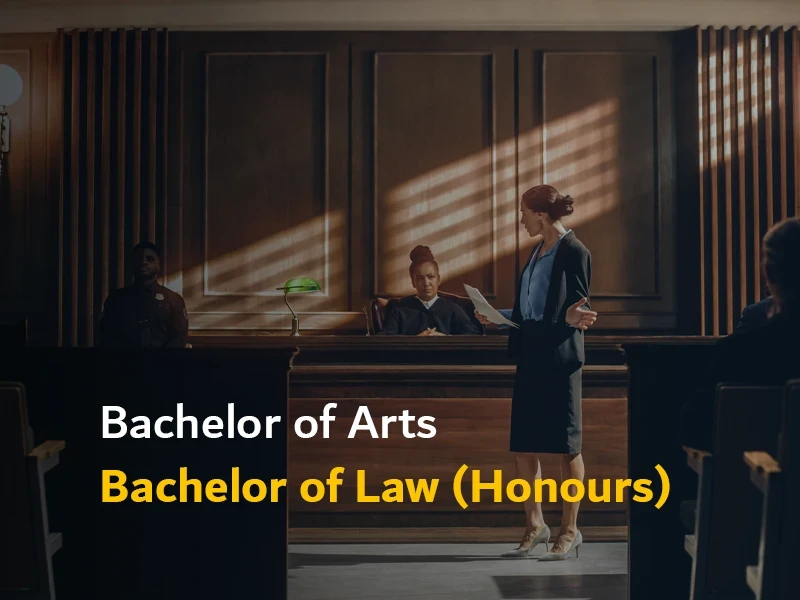LAW109 Law of Torts (M V Act 1988 and C P Act, 1986)
This
course aims to introduce the student to the specialized discipline of
the Law of Torts, which is one of the most litigated areas of law in the
west. In India, this realm is on the verge of a lot of litigation
activity. The course also covers Consumer Protection Act, 2019, which is
carved out from the general principles of tort. Law of Torts being a
continuing branch of law, the thrust of this course is to make the
student understand that different circumstances call for different
remedies.
LAW119 Law of Contract I (General Principles)
To
acquaint students with the conceptual and operational parameters of the
general principles of contractual relations. To analysis the kinds of
contracts, their enforcement and the vitiating factors of a contract. To
develop transactional ability of the students.
PSYC149 Introduction of Psychology in Legal Profession
To
understand the significance role of behavior with reference to legal
profession. To develop an understanding of processes involved in
learning and cognition. To create an awareness of the role of
psychologists in society.
SOC125 Sociology - An Introduction
Express
an understanding of sociology’s contributions to other disciplines such
as Law, History and other social sciences. Elaborate an understanding
of the usefulness and limitations of the sociological theories and
various concepts and thoughts. Illustrate the nature of Indian Society
with major institutional blocs with special reference to (Family,
Marriage, Kinship, Education, Religion, etc.) in the legal framework.
Describe the role of culture and social structure in determining
individual lives and be able to offer and identify illustrations of
these processes. Explain the effects of caste, class, gender and other
forms of difference on society and be able to provide significant
examples of these effects. Students ought to be able to identify the
effect of law through sociological understanding at individual,
institutional, and cultural levels.
ECON147 Economics-I (Fundamentals of Micro Economic Analysis)
The
purpose of Microeconomics is to give students a thorough understanding
of the principles of economics that apply to the decisions of
individuals--both consumers and producers. It places primary emphasis on
the nature and functions of product markets, and includes the study of
factor markets.
ECON148 Economics-II (Leading Issues in Indian Economic Development)
HIST141 History of India from Vedic to Colonial Era
HIST142 Constitutional Development in Colonial and Post-Colonial India
PSCI126 Political Science I (Political Theory)
Political
Science is considered to be the ‘mother science’ of Law and as such the
two have an intimate relationship. A student of law is expected to
have an insight and understanding as to how Law Functions. State being
the central theme is prime focus of the study. This Paper will make
students more comprehend with the different theories and concept of
political science.
PSCI324 Public Administration
LAW674 Environmental Studies and Law
ELAW103 General Legal English
The
objective of this course is to develop the student’s capability to
write and speak in English correctly. The student should be well versed
with legal terminologies.
LAW117 Constitutional Law of India-I
LAW120 Law of Contract II (Specific Contracts)
PSYC150Counselling Psychology for Lawyers
SOC126 Contemporary Perspective of Sociology
ECON149 Economics-III (Fundamentals of Macro Economic Analysis)
ECON150 Economics-IV (Economics of Money and Financial Markets)
HIST143 European History
HIST144 Historiography and Interdisciplinary Approach
PSCI127 State and Government
PSCI128 Political Obligation and Law
ELAW104 English Literature for Lawyers
LAW136 Environmental Studies and Law – II
This
paper will discuss the basics of environmental studies and issues
pertaining to the same. The students would learn about the basics of
environmental laws and regime pertaining and a few major Supreme Court
cases pertaining to environment in India.
























